By Daily Sports on January 16, 2016

An American politician Grover Norquist once asserted that “government should enforce rule of law. It should enforce contracts; it should protect people bodily from being attacked by criminals. And when the government does those things, it is facilitating liberty. When it goes beyond those things, it becomes destructive to both human happiness and human liberty.” Grover’s position on the need for government to enforce contracts is one that over the years had been hammered upon by authors, sports analysts, pundits, sports lawyers and indeed all stake holders in the juicy corridors of sports in Nigeria.
The intention of this brief piece is to take a long hard look at the malady football clubs in Nigeria are often faced with particularly as it regards compliance with their financial obligations towards players and other clubs as per the terms stipulated in the contracts signed with their professional players and in the transfer agreements while also placing side-by-side the current addition to the Regulation on the Status and Transfer of Players – Article 12bis.
Article 12bis – overdue payables – of the Regulation on the Status and Transfer of Players provides in paragraph(1) that “clubs are required to comply with their financial obligations towards players and other clubs as per the terms stipulated in the contracts signed with their professional players and in the transfer agreements.” The wordings of this paragraph in a nutshell are a reiteration of the principles of contractual sanctity/sanctity of contract also referred to as the pacta sunt servanda doctrine. We do not need to dwell on this much longer since we had earlier posited in our previous writings that the contract which creates the very sacred link between a player and the club is very vital in the modern era of football as all eyes go back to that link in cases of breach. This principle of contractual stability is of paramount importance in the world of football. It is at the basis of an efficient transfer system characterised inter alia by the redistribution of wealth from ‘big’ to ‘small’ clubs as well as by secured investments in youth development. If the principle of contractual stability is very well understood by clubs, players and all stake holders in the football world and put into practice, the level of growth both at the amateur and professional level of football in Nigeria will be enviable.
The question begging for an answer is: How many clubs in the Nigeria Professional Football League (NPFL) could boldly say they have complied with their financial obligations towards players? Indeed, the norm is now for clubs and some clubs’ chairmen to boast of how untouchable they are and how they would blatantly disregard the provisions of the Rules and Regulations of the Game without the Nigeria Football Federation (NFF) or the League Management Company (LMC) cracking down upon them.
Just recently, players of El-Kanemi Warriors Football Club, a football club in the top flight division of the Nigeria League, decided to stay away from their NPFL game at FC Ifeanyi Ubah because of unpaid wages. The LMC, the body responsible for the Nigeria top flight league, had before then warned the club that they must pay outstanding debts to the players before October 27, 2015 or they would have six points deducted. What is even more worrisome is that before the El-Kanemi Warriors FC drama, the NFF Players’ Status/Arbitration Committee had doled out decisions with sanctions sprinkled around them in cases of breach to clubs like Nasarrawa United Football Club, Akwa United Football Club, Bayelsa United Football Club, Shooting Stars (3SC) Football Club – to mention but a few. Some of these clubs had failed to comply with their financial obligations towards players, coaches as well as other clubs as per the terms stipulated in the contracts signed with their professional players and in the transfer agreement.
Paragraph 2 of Article 12bis of the Regulation on the Status and Transfer of Players provides in clear terms that “any Club found to have delayed due payment for more than 30 days without a prima facie contractual basis may be sanctioned in accordance with paragraph 4 below.”
What the above provision therefore implies is that football players in the NPFL do not need to wait to be owed till they attain Methuselah’s age; rather where there is no prima facie contractual basis for delaying payment due to them for over 30 days, a trade dispute could be declared and such clubs may be sanctioned in accordance with the laid down Rules. It should be noted that this provision is in conflict with the 60 days stipulations enshrined in the LMC Guidelines and it is our view that on the basis of Article 1 (3) (a) – Scope – of the Regulation on the Status and Transfer of Players which states that ‘the following provisions are binding at national level and must be included without modification in the association’s regulations: articles 2-8, 10, 11, 12bis, 18, 18bis, 18ter, 19 and 19bis’, the provisions of the FIFA Regulations on the Status and Transfer of Players prevail.
To invoke the provisions of the Article under review all that the Player or Club needs to do is to grant a deadline of 10 days in writing. This deadline is to allow the debtor club to comply with its financial obligation(s) as contained in the contracts or transfer agreements.
Article 12bis (3) provides therefore that “in order for a club to be considered to have overdue payables in the sense of the present article, the Creditor (Player or Club) must have given notice to the debtor Club in default in writing and have granted a deadline of at least ten days for the Debtor Club to comply with its financial obligation(s).”
Within the scope of their respective jurisdiction, the Players’ Status Committee, the Dispute Resolution Chamber, the single Judge or the DRC Judge may impose the following sanctions: a warning; a reprimand; a fine; a ban from registering any new players, either nationally or internationally, for one or two entire and consecutive registration periods.
Since the NFF confers jurisdiction only on the Players’ Status/Arbitration Committee and because of the absence of a Dispute Resolution Chamber, the single Judge or the DRC Judge, the burden upon the Players’ Status/Arbitration Committee at this point becomes heavier and the Committee is therefore charged to appreciate the enormous duty it bears towards the survival and promotion of football in Nigeria. The Committee should look at the sanctions provided in the Regulations and impose them accordingly when the need arises without fear or favour.
It should be noted that the sanctions provided for in paragraph 4 of the Regulations may be applied cumulatively so that a club. For instance, in addition to being warned could also be fined or banned from registering any new players, either nationally or internationally, for one or two entire and consecutive registration periods.
Where a club is in the habit of repeating the offence of non-compliance with their financial obligations, this is considered as an aggravating circumstance and may lead to more severe penalty.
It is interesting to note that paragraph 7 of Article 12bis of the Regulation on the Status and Transfer of Players has also considered the effects which probationary measures could have on defaulting Club(s) and thus provides that “the execution of the registration ban in accordance with paragraph 4 d) above may be suspended. By suspending the execution of a registration ban, the deciding body subjects the sanctioned club to a probationary period ranging from six months to two years.”
The 2015 season in the NPFL is almost over but this new addition to the Regulations on the Status and Transfer of Players could still be meaningfully applied to the various issues bedeviling our league. It is our position that the NFF and the LMC could make the applicability of Article 12bis of the FIFA Regulation on the Status and Transfer of Players a dream come true so that in the subsequent seasons, the success and progress already recorded by the NFF and the LMC could be doubled and when this is done the lost confidence by majority of soccer loving Nigerians would be restored. The Players’ Union should also appreciate the enormous task upon her and collaborate with the NFF and the LMC towards the advancement of the soccer regime in Nigeria.
•Amobi Ezeaku, Esq. is Legal Adviser, Nigeria players Union, National Association of Nigeria Professional Footballers (NANPF). Your comments and reactions are welcome. Please send to 08038338272, 08158461730 or by e-mail to amobi.ezeaku@yahoo.com; publisher@dailysportsng.com
Source Daily Sports
Posted January 16, 2016
You may also like...

Isaac Success gets down to pre-season business with...

Dominant Fulham Frustrated In Goalless Draw At Palace...

Ancelotti: Iwobi’s Best Moment Since I Arrived At...
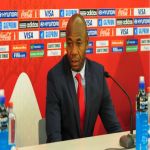
Ekwueme To NFF: Bring Back Amunike, Things have...
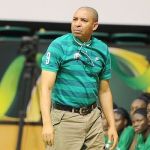
Nigeria can't underrate FIBA Women's AfroBasket 2017 opponents,...

Club Loses 20 – 0 in League Match,...

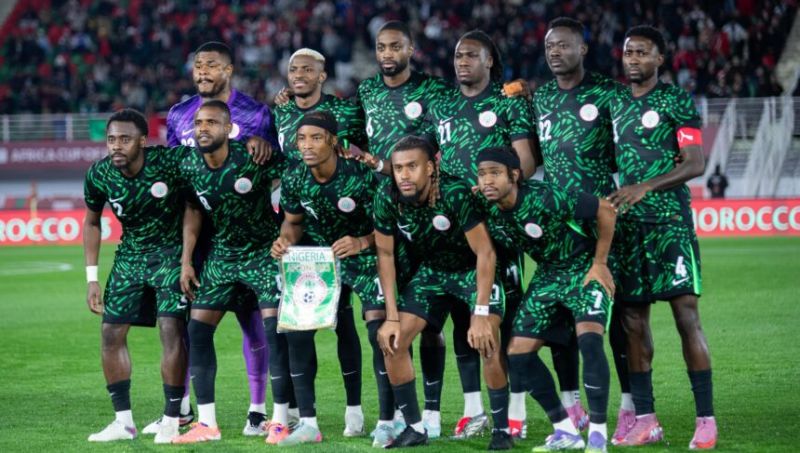 NOC's Gumel hails Super Eagles' Triumph of Character, Transformation to secure AFCON bronze medal
NOC's Gumel hails Super Eagles' Triumph of Character, Transformation to secure AFCON bronze medal  Significant milestone as Nigeria's Gumel welcomes Oyedeji into IOC
Significant milestone as Nigeria's Gumel welcomes Oyedeji into IOC AFCON 2025 Final: CAF Referees' Committee On Trial
AFCON 2025 Final: CAF Referees' Committee On Trial 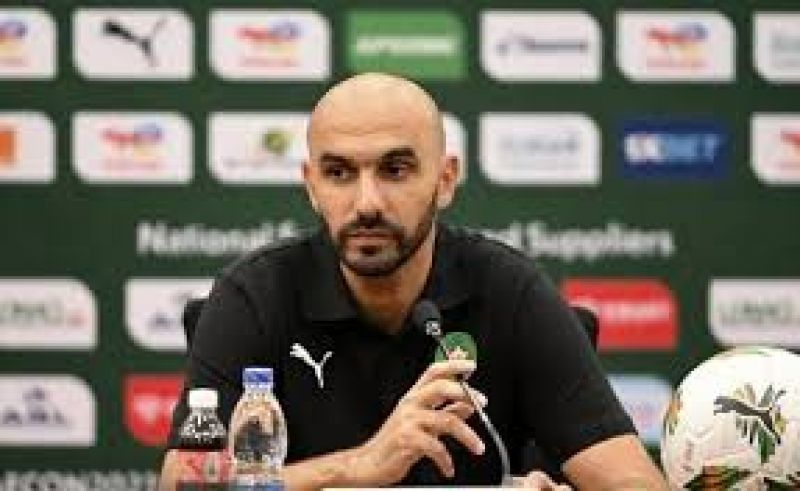 Regragui slams referee for poor final officiating
Regragui slams referee for poor final officiating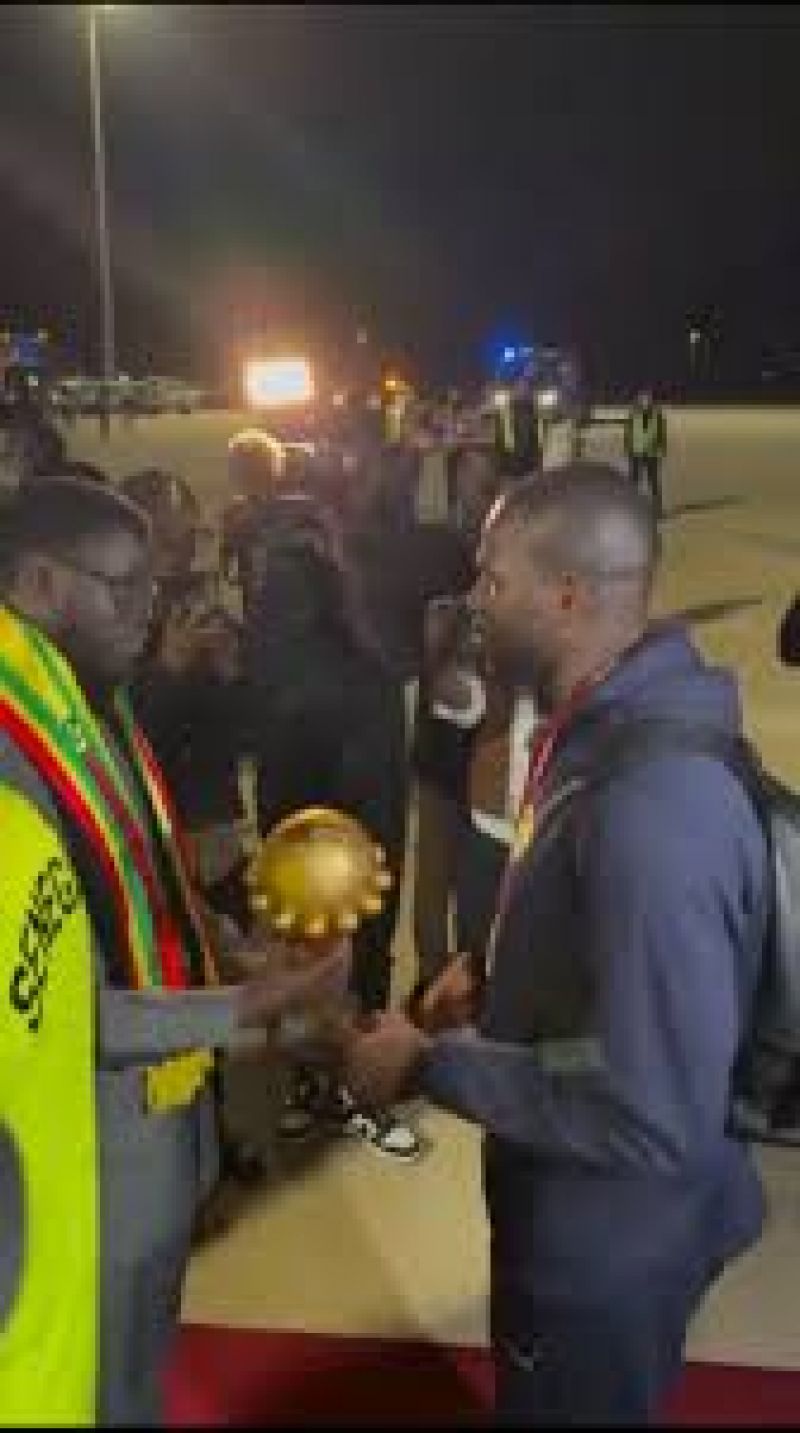 Senegal team returns home, presents AFCON trophy to President
Senegal team returns home, presents AFCON trophy to President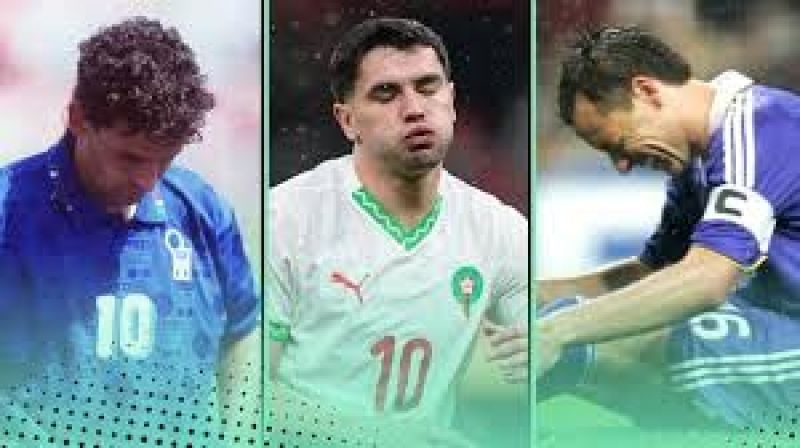 FULL LIST: 10 players who missed crucial penalties on football's biggest stages
FULL LIST: 10 players who missed crucial penalties on football's biggest stages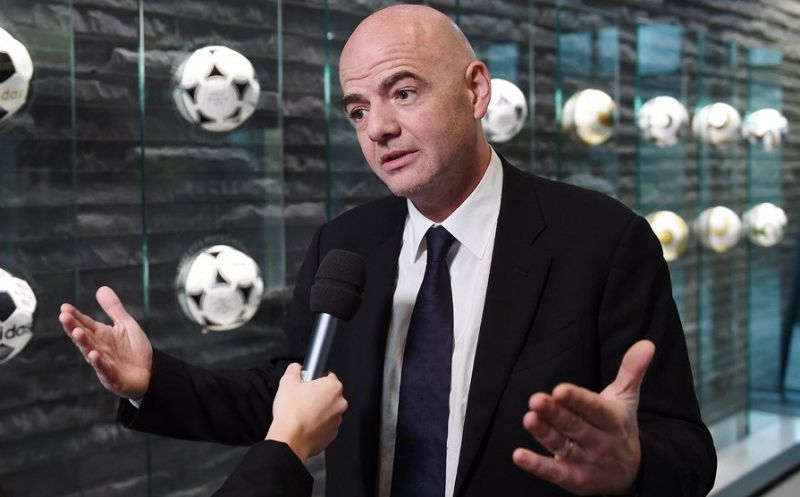 ‘We witnessed unacceptable, ugly scenes’ - FIFA slams Senegal, praises Morocco over AFCON 2025 final
‘We witnessed unacceptable, ugly scenes’ - FIFA slams Senegal, praises Morocco over AFCON 2025 final_1.jpeg) What Super Eagles And Others Received From 2025 AFCON Prize Pool
What Super Eagles And Others Received From 2025 AFCON Prize Pool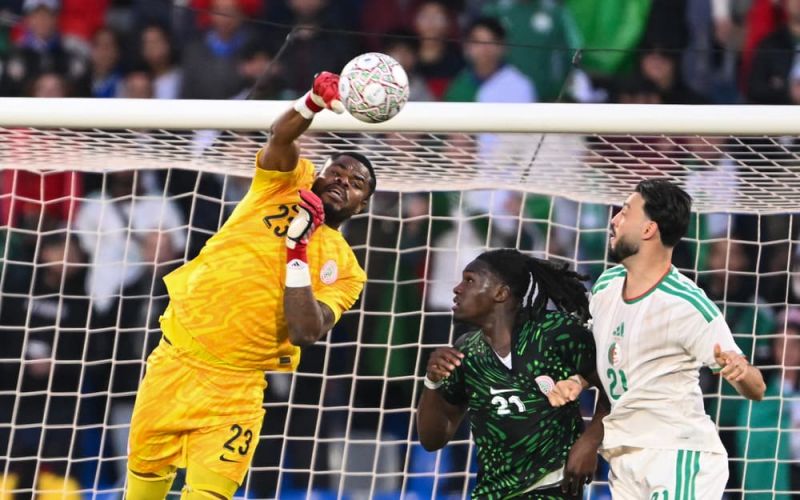 Calvin Bassey, Nwabali selected for 2025 AFCON Best XI
Calvin Bassey, Nwabali selected for 2025 AFCON Best XI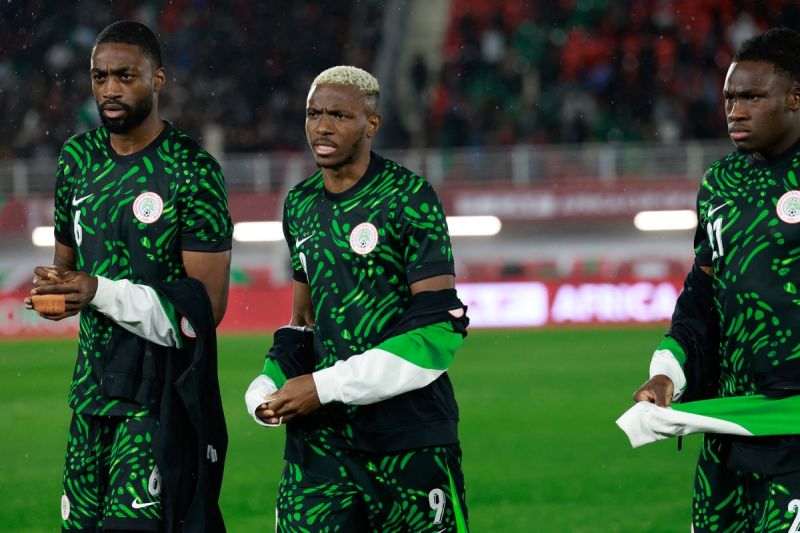 Super Eagles enjoy big jump in FIFA Ranking after 2025 AFCON run
Super Eagles enjoy big jump in FIFA Ranking after 2025 AFCON run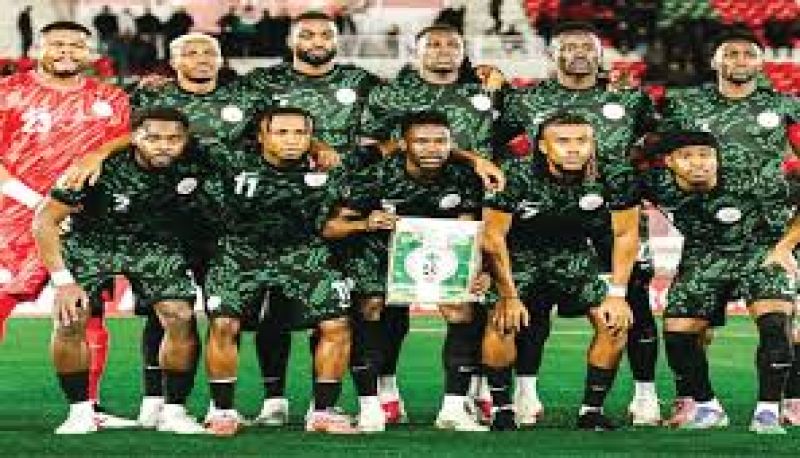 Ogbu hails current Eagles as Nigeria’s greatest
Ogbu hails current Eagles as Nigeria’s greatest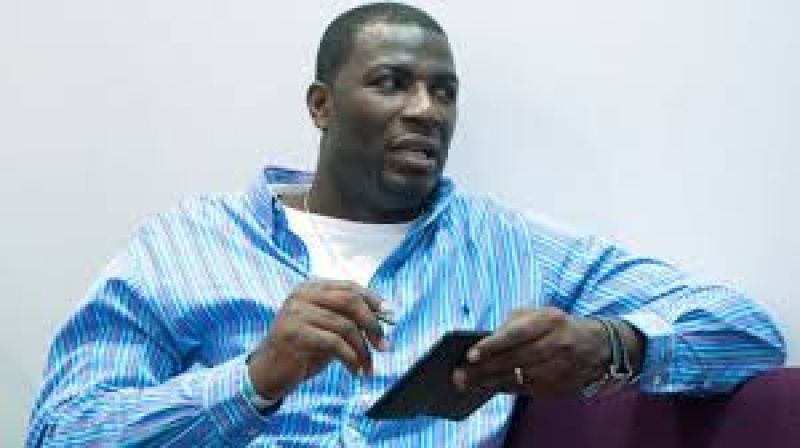 Ahmedu backs Oyedeji to steady Nigerian basketball
Ahmedu backs Oyedeji to steady Nigerian basketball Rangers International going, going . . . (63,485 views)
Rangers International going, going . . . (63,485 views) Amaju Pinnick: A cat with nine lives (54,777 views)
Amaju Pinnick: A cat with nine lives (54,777 views) Second Term: Amaju Pinnick, Other NFF Heavyweights Home to Roost •How Pinnick Broke the Jinx (52,675 views)
Second Term: Amaju Pinnick, Other NFF Heavyweights Home to Roost •How Pinnick Broke the Jinx (52,675 views) Current issues in Nigerian sports: Matters arising (52,340 views)
Current issues in Nigerian sports: Matters arising (52,340 views) Sports Development: Zenith Bank on the zenith (52,266 views)
Sports Development: Zenith Bank on the zenith (52,266 views) Missing $150,000 IAAF Grant: Solomon Dalung’s Hide and Seek game (52,180 views)
Missing $150,000 IAAF Grant: Solomon Dalung’s Hide and Seek game (52,180 views) Gov. Abdullahi Ganduje’s solid footprints, commitment to sports development in Kano State (52,044 views)
Gov. Abdullahi Ganduje’s solid footprints, commitment to sports development in Kano State (52,044 views) NFF Presidency: Pinnick, Maigari, Ogunjobi, Okoye in Battle for Supremacy (51,600 views)
NFF Presidency: Pinnick, Maigari, Ogunjobi, Okoye in Battle for Supremacy (51,600 views) Olopade, BET9A wave of revolution in NNL (50,777 views)
Olopade, BET9A wave of revolution in NNL (50,777 views) Commonwealth Games 2018: Shame of Muhammadu Buhari, Solomon Dalung (49,305 views)
Commonwealth Games 2018: Shame of Muhammadu Buhari, Solomon Dalung (49,305 views) Ibrahimovic’s Man U exit: Whose decision is it? And in whose interest? (47,697 views)
Ibrahimovic’s Man U exit: Whose decision is it? And in whose interest? (47,697 views) John Mikel Obi: Segun Odegbami’s Outrageous Call! (47,165 views)
John Mikel Obi: Segun Odegbami’s Outrageous Call! (47,165 views)